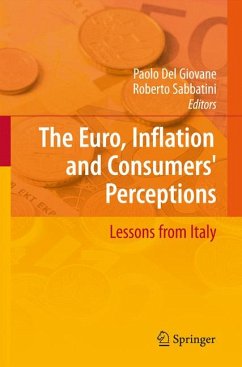This book puts forward convincing empirical evidence, primarily drawn from Italy's experience, to establish whether the introduction of the euro has had a major impact on prices, and if not, why so many people believe it has. Its significance lies not only in the documentation of a historic event, but also and more importantly, in the lessons it provides, which concern the public's understanding of inflation, the correct assessment of the effects of the single currency, and the need for appropriate measures when other countries adopt the euro.
Dieser Download kann aus rechtlichen Gründen nur mit Rechnungsadresse in A, B, BG, CY, CZ, D, DK, EW, E, FIN, F, GR, HR, H, IRL, I, LT, L, LR, M, NL, PL, P, R, S, SLO, SK ausgeliefert werden.









